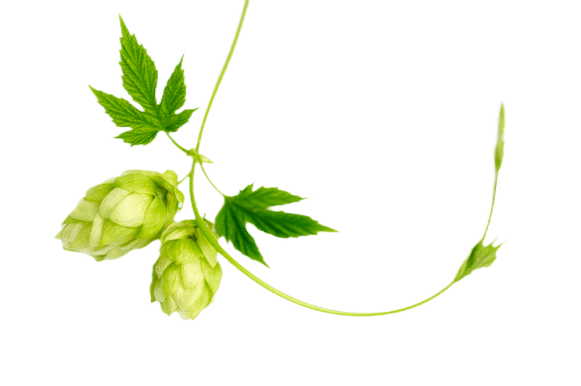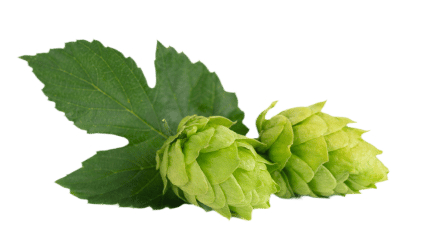Keeping it Local & Saving the Planet
We all love the great flavours of hops grown in the USA, Slovenia and New Zealand. What’s not to like? Many will say that the introduction of new varieties from these regions have pushed forward the beer brand considerably over the last few years. Many prefer them to British hops.
So, would it matter at all if we didn’t grow hops here in the UK?
As a brewer in the UK would it matter to you?
If we think about it logically there are many reasons to buy locally grown hops
- British hops used in the UK travel fewer miles from farm to brewery so have a lower carbon footprint than most imported hops. Some hops travel for weeks in refrigerated containers, from the USA and New Zealand in particular.
- British hops are produced to some of the highest pesticide residue standards in the world: much fewer active ingredients are approved for use in the UK compared to the biggest hop growing areas of Germany or the USA.
- Britain’s hop breeding programmes are the envy of the world; our gene bank of disease resistant males and aphid resistant females are much sought after by farmers in other countries.
- Britain has some of the most robust food assurance and traceability systems in the world.
- By choosing British Hops you support the local economy; everyone from the farmer, to those who work on the farms, to those who service the tractors and the picking machines
- You play your part in protecting our environment as much of Britain’s food is produced in a sustainable way that enhances the countryside.
Seems pretty straightforward doesn’t it? I am sure that we all want hops to travel less miles on the way to the brewery, we all want to reduce our carbon footprint, we all want to support the local economy, don’t we?
So why do we find that our local hop acres here in the UK are in decline whilst the acreages in the USA, New Zealand and Germany are still rising? Discussing this with brewers it seems very simple; for many, the flavours and aroma in their increasingly successful beers cannot be achieved by using traditional British varieties.
Whilst traditional Great British bitters and milds have been at the forefront of beer sales in the UK for many years they are now being surpassed by the Pale Ales, IPA’s and in particular NEIPA’s which require the flavours and aromas that, for some brewers, currently only come from hops from other parts of the world.
There is no doubt that if the same sort of flavours were available in hops grown locally then many brewers would prefer to use them. We have to bear in mind that British hop breeding efforts in the past have been 100% focussed on producing Fuggles and Goldings types such as Challenger, Target, Pilgrim, First Gold, Progress, all renowned for having that delightfully delicate traditional British hop character and quality.
It takes a long time to develop new hop varieties. Rest assured that Charles Faram is already well on the way thanks to local plant expert Peter Glendinning. Way back in 2008 we embarked on a partnership project to develop new UK varieties with more intense, fruity characteristics. There were fears that the mild, maritime UK climate may not be able to grow hops with these flavours but the initial findings had been good and we were very keen to find out more.
So here we are 12 years on from those initial forays and the varieties coming off the Charles Faram Hop Development Programme (Jester®, Olicana®, Godiva™, Mystic™ and now Harlequin®) have far more flavour and aroma than we would have ever imagined. What’s even more exciting is that there is more to come. Every year the intensity increases by another 5-10%, so who knows what might be achievable? What is for certain is that we are going to push on with developments in earnest and as quickly as possible. If we all want sustainability and locally grown produce it has got to be the right thing to do.
One of the huge benefits highlighted in the new selections this year is that the growers on some farms are reporting using 20% less fertiliser and pesticide. This is a fantastic side effect that we never envisaged and is a benefit we are thrilled about. To take this even further we are now trialling some of the Charles Faram varieties under organic production to see how far we can go. Having strong, aromatic, disease resistant varieties available is going to reduce our reliance on pesticides and be a mainstay in our programme going forward.
We know that brewers are not currently going to get all the flavours they need from British varieties but a great way to help the programme would be to try some of the new Charles Faram varieties. How about brewing a special or using some in a small brew of a core beer to compare flavour? By doing this you help us to finance more research and development which is bound to produce some even more magnificent home-grown local hops in the future.
Thank you to all those brewers already using British hops and Charles Faram varieties, your support is very much appreciated and thank you to everyone who reads this article. We hope it inspires you to keep it local whenever you can so we can all do our bit to help in saving the planet!
Paul Corbett
Managing Director
Charles Faram & Co Ltd
To read more go to https://pantherbrewery.co.uk/decade-brew-news/





